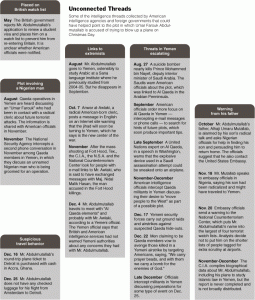Those of us who aren’t American but still follow U.S. politics were quietly giggling (okay, openly guffawing) into our latte’s last week when Scott Brown won the special election to replace the late Ted Kennedy. The Daily Show’s take on the whole affair (I think it was broadcast the night before the election day) was spot on and I urge anyone with the capability to hunt down that episode. In short, the Democrat’s handling of the event is a classic example of why the word clusterfuck was invented. What in blazes they now intend to do in passing any reasonable kind of reform in health-care (and the ideas on the table weren’t really all that reasonable to start with) is beyond me.
Anyway. I tip my hat to the newest federal Senator in the United States for an expertly handled campaign.
I was then surprised to (finally) see some equally smart politics from the White House in the form of Obama publically supporting the banking regulation ideas of former Fed chair and octogenarian, Paul Volcker.
The White House had already been making noises about imposing a fee on financial institutions to recoup any losses in TARP. TARP, if you remember, is the US$700 billion officially set aside under president Bush Jr. to help the finance industry weather the storm. Of course, a large fraction of TARP was diverted to help the car (that’s “auto” for any Americans in the audience) industry and not all assistance to the financial industry was included in TARP. Still, it’s the closest thing to an easy target with a pronounceable name. If you care, you can read my incredibly brief thoughts on the levy here and, more importantly, here.
But the Volcker plan is an entirely different kettle of fish and can be boiled down to a simple and beautiful phrase: “Too big to fail is just too big.”
It calls for constraints on the scope and the size of US banks. It seeks to ban proprietary trading at institutions that hold retail deposits. It’s an armchair commentator’s wet dream come true! It’s also, unfortunately, staggeringly unlikely to ever become reality. There are two reasons for this.
First, as expertly described by the Economics of Contempt, the White House has no intention of pushing this through anyway. Instead, it was …
… a fairly transparent political stunt — the White House needed to do something to take the media’s focus off of health care 24/7, so they flew in Volcker and announced some proposals that sound good to the media. The two Senate staffers I talk to regularly both said their offices were basically ignoring Obama’s proposals, because even if the White House fights for them (which they won’t), Chris Dodd has no intention of inserting them into his committee’s bill. I like how some people think Obama’s proposals represent a fundamental turning point on financial reform, because….well, clearly this is their first rodeo. (Hence the uber-quixotic language they use to describe financial reform.)
[Update: Just to clarify, when I said Obama’s announcement was a “fairly transparent political stunt,” I wasn’t criticizing the Obama administration. We live in a political world, and political stunts are often useful. If I were Rahm Emanuel, I’d be a dick have done the same thing. I think it was probably a savvy move, and if health care reform ends up passing, then it was worth it.]
Second, the U.S. Supreme Court, in the second move in the space of a week to leave the America-watchers of the world chuckling, decided to reverse decades of precedent and assert that when it came to political speech, corporations, unions and other groups of individuals have more power than individuals. Not only can corporations, unions and the like directly fund political campaigns, but unlike individuals, they are subject to no limit on their donations. It’s great. You’re going to end up seeing major political events sponsored by Pepsi. You’re going to have unlimited funding available to opponents of any politician that does anything that runs contrary to a company that employs people in his or her district or state. In short, you will never, ever again see anything serious passed in an election year in the United States unless it has not just bipartisan, but unanimous support.
So, no, as much as I like what Obama said, I don’t think it’ll ever become law. It certainly won’t in 2010.
